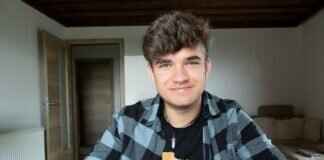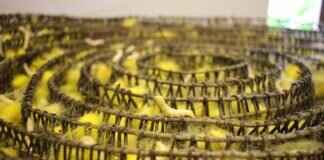This article explores the transformative impact of Himiway electric bikes on modern cycling, highlighting their features, benefits, and how they are revolutionizing the way we commute and explore.
Introduction to Himiway Electric Bikes
Himiway electric bikes are quickly becoming a popular choice among cycling enthusiasts and casual riders alike. With their innovative design and user-friendly features, Himiway is committed to enhancing the cycling experience for riders of all levels. These bikes are not just a mode of transport; they represent a lifestyle choice that promotes health, sustainability, and adventure.
Key Features of Himiway Electric Bikes
- Powerful Motors for Enhanced Performance: The heart of any electric bike is its motor. Himiway bikes feature robust motors that provide excellent performance across various terrains, making them suitable for both urban commuting and off-road adventures.
- Long-lasting Battery Life: Battery technology is crucial for electric bike users. Himiway bikes come equipped with high-capacity batteries that support extended rides, allowing users to travel further without the need for frequent recharging.
Benefits of Riding Himiway Electric Bikes
- Health Benefits of Electric Biking: Riding a Himiway electric bike promotes physical fitness while offering an enjoyable way to stay active. The pedal-assist feature allows riders to control their exertion levels, making it accessible for everyone.
- Eco-Friendly Transportation Option: In an age where sustainability is crucial, Himiway electric bikes provide an eco-friendly alternative to traditional vehicles, helping to reduce carbon footprints and promote cleaner urban environments.
Comparing Himiway Bikes with Other Brands
In a competitive market, understanding how Himiway stacks up against other brands is essential. Himiway bikes are known for their affordability and performance, making them an attractive option for consumers looking to invest in an electric bike.
User Reviews and Satisfaction: Feedback from users highlights the reliability and enjoyment of riding Himiway bikes. Many riders appreciate the combination of performance and comfort that these bikes offer.
Future of Electric Biking with Himiway
As technology evolves, so does the electric biking industry. Himiway is exploring innovative features that will further enhance the riding experience, including advanced battery technologies and smart connectivity options.
Conclusion: The Himiway Revolution
In conclusion, Himiway electric bikes are not just a trend; they represent a significant shift in how we approach cycling and commuting. With their impressive features and numerous benefits, they are a compelling choice for modern riders seeking adventure and sustainability.

Introduction to Himiway Electric Bikes
Himiway electric bikes are rapidly becoming a preferred choice for cycling enthusiasts and casual riders alike. Known for their innovative design and user-friendly features, Himiway has established itself as a leader in the electric bike market. The brand’s commitment to enhancing the cycling experience is evident in every model they offer, catering to riders of all skill levels.
One of the standout aspects of Himiway electric bikes is their ability to combine style with functionality. Each bike is engineered with high-quality components, ensuring durability and reliability on various terrains. Whether you’re navigating city streets or exploring rugged trails, Himiway bikes are designed to provide a smooth and enjoyable ride.
Moreover, Himiway prioritizes accessibility and comfort. Their bikes feature adjustable seats, ergonomic grips, and intuitive controls, making them suitable for long rides without causing discomfort. This focus on user experience allows riders to enjoy extended journeys, whether for commuting or leisurely exploration.
The brand also emphasizes sustainability, aligning with the growing demand for eco-friendly transportation. By choosing a Himiway electric bike, riders contribute to reducing their carbon footprint while enjoying the benefits of electric biking. The bikes are equipped with powerful motors and long-lasting batteries, enabling users to travel further with less environmental impact.
In summary, Himiway electric bikes are not just a mode of transport; they represent a modern lifestyle choice that promotes health, sustainability, and adventure. With their innovative features and commitment to quality, Himiway is transforming how we approach cycling, making it accessible and enjoyable for everyone.

Key Features of Himiway Electric Bikes
Himiway electric bikes are revolutionizing the cycling experience with their remarkable features designed for both performance and comfort. These bikes stand out in a crowded market, providing an exceptional riding experience that appeals to a wide range of cyclists. Below, we explore the key features that make Himiway electric bikes a top choice for riders.
- Powerful Motors: Himiway bikes are equipped with high-performance motors that deliver robust power, enabling riders to conquer various terrains with ease. Whether you’re navigating steep hills or cruising on flat roads, the motor provides the necessary support for a smooth ride.
- Long-lasting Battery: One of the standout features of Himiway electric bikes is their impressive battery life. With advanced lithium-ion batteries, riders can enjoy extended trips without the constant worry of recharging. This feature is particularly beneficial for long-distance commuters and adventure seekers.
- Comfortable Design: Comfort is key when it comes to cycling, and Himiway bikes prioritize rider comfort. With ergonomic designs, adjustable seats, and shock-absorbing features, these bikes ensure a pleasant riding experience, even on bumpy roads.
- Durability: Built with high-quality materials, Himiway electric bikes are designed to withstand the rigors of daily use. Their sturdy frames and reliable components ensure longevity, making them a worthwhile investment for any cyclist.
- Smart Technology: Many Himiway models come equipped with smart technology features, such as integrated displays that provide real-time data on speed, battery life, and distance traveled. This technology enhances the overall riding experience and helps riders stay informed.
- Eco-Friendly Transportation: As a sustainable alternative to traditional vehicles, Himiway electric bikes contribute to reducing carbon emissions. By choosing to ride, cyclists not only benefit their health but also help protect the environment.
In summary, the key features of Himiway electric bikes make them a compelling choice for anyone looking to enhance their cycling experience. With powerful motors, long-lasting batteries, and a focus on comfort and durability, Himiway is setting a new standard in the electric bike market.
Powerful Motors for Enhanced Performance
The motor is the beating heart of any electric bike, and Himiway bikes are no exception. These bikes are equipped with high-performance motors that significantly enhance the riding experience across various terrains and conditions. Whether you’re tackling steep hills, navigating through city streets, or enjoying a leisurely ride on flat paths, Himiway motors provide the necessary power and efficiency.
Himiway bikes typically feature 750W brushless motors, which deliver impressive torque and speed, allowing riders to accelerate quickly and maintain higher speeds with minimal effort. This powerful motor setup not only makes climbing hills easier but also enhances the overall riding experience by providing a smooth and responsive feel.
One of the standout features of Himiway motors is their ability to perform exceptionally well in diverse conditions. Riders can confidently traverse rough terrains such as gravel paths, muddy trails, or sandy beaches, thanks to the robust construction and performance of these motors. The combination of power and durability ensures that riders can enjoy their adventures without worrying about the bike’s performance.
Moreover, Himiway’s motors are designed with efficiency in mind. They optimize energy consumption, allowing for longer rides on a single charge. This is particularly beneficial for those who use their electric bikes for commuting or long-distance travel, as it reduces the frequency of recharging and enhances the overall convenience of electric biking.
In summary, the powerful motors in Himiway electric bikes play a crucial role in enhancing performance. With their ability to tackle various terrains, deliver impressive speed, and provide energy efficiency, these motors are a key component that sets Himiway apart in the competitive electric bike market.
Long-lasting Battery Life
is a pivotal aspect for any electric bike user, especially for those who wish to extend their riding adventures without the hassle of frequent recharging. In this section, we will delve into the advanced battery technology utilized in Himiway electric bikes, which is designed to enhance the riding experience significantly.
Himiway bikes are equipped with high-capacity lithium-ion batteries that not only provide impressive energy efficiency but also ensure a longer lifespan. These batteries are engineered to support extended rides, allowing users to travel greater distances on a single charge. For instance, many Himiway models feature batteries with capacities ranging from 48V to 48V 17.5Ah, which can support rides of up to 60 miles under optimal conditions.
One of the key benefits of Himiway’s battery technology is its ability to retain charge over time. This means that riders can store their bikes without worrying about battery degradation, making it an ideal choice for those who may not ride daily. Additionally, the charging process is streamlined; most Himiway batteries can be fully charged in just 4 to 6 hours, minimizing downtime and allowing for quick turnarounds between rides.
Furthermore, Himiway bikes incorporate a smart battery management system that monitors the battery’s health and performance. This system not only maximizes efficiency but also provides users with real-time data on battery status, ensuring they are always informed about their bike’s readiness for the next adventure.
In conclusion, the of Himiway electric bikes plays a crucial role in enhancing the overall riding experience. With advanced technology, efficient energy use, and smart monitoring systems, Himiway ensures that riders can enjoy extended journeys without the constant concern of recharging, making every ride an exciting exploration.

Benefits of Riding Himiway Electric Bikes
Riding a Himiway electric bike provides a multitude of advantages that cater to both individual riders and the larger community. This section explores the most significant benefits, focusing on health, environmental impact, and the overall riding experience.
- Health Benefits: Engaging in regular cycling can significantly improve physical health. Himiway electric bikes encourage riders to stay active, promoting cardiovascular fitness and muscle strength. The pedal-assist feature allows users to adjust the level of effort, making it accessible for individuals of all fitness levels. This means you can enjoy a leisurely ride or get a vigorous workout, depending on your personal goals.
- Environmental Impact: As cities grapple with pollution and traffic congestion, Himiway electric bikes present an eco-friendly transportation option. By choosing to ride rather than drive, individuals contribute to reducing greenhouse gas emissions. Electric bikes use less energy compared to traditional vehicles, and they help in minimizing noise pollution, making urban areas more pleasant to live in.
- Cost-Effective Transportation: Investing in a Himiway electric bike can lead to significant savings in transportation costs. With rising fuel prices and maintenance expenses for cars, cycling provides an economical alternative. Additionally, many cities offer incentives for electric bike users, such as tax credits or rebates, further enhancing their affordability.
- Enhanced Riding Experience: Himiway electric bikes are designed for comfort and convenience. Features such as ergonomic seating, adjustable handlebars, and robust suspension systems ensure a smooth ride. Riders can traverse various terrains with ease, making it ideal for commuting, recreational rides, or even off-road adventures.
In conclusion, the benefits of riding Himiway electric bikes extend beyond personal health and convenience. They play a vital role in promoting a sustainable future, making them an excellent choice for modern riders seeking both enjoyment and responsibility in their transportation choices.
Health Benefits of Electric Biking
Electric biking is not just a fun way to explore your surroundings; it also offers numerous health benefits that can significantly enhance your overall well-being. Himiway electric bikes, in particular, are designed to promote physical fitness while ensuring a pleasurable riding experience. Let’s delve deeper into how these bikes contribute to a healthier lifestyle.
- Cardiovascular Fitness: Riding an electric bike engages your heart and lungs, improving cardiovascular health. The combination of pedaling and the assistance from the motor encourages riders to maintain a steady heart rate, which is essential for building endurance.
- Muscle Strength: Electric biking works various muscle groups, including the legs, core, and arms. As you pedal, you strengthen your quadriceps, hamstrings, and calves, while also engaging your upper body for balance and control.
- Weight Management: Incorporating electric biking into your routine can aid in weight loss or maintenance. The activity burns calories, and because Himiway bikes allow riders to adjust their level of effort, you can tailor your workout to suit your fitness goals.
- Mental Health Benefits: Cycling has been shown to reduce stress and anxiety levels. The combination of fresh air, physical activity, and the joy of riding can boost your mood and enhance your mental clarity.
- Accessibility for All: Himiway electric bikes make cycling accessible to a broader audience, including those who may find traditional biking challenging. The pedal-assist feature allows individuals of varying fitness levels to enjoy the benefits of cycling without overexertion.
In conclusion, electric biking with Himiway bikes is an effective way to stay active and healthy. By integrating this enjoyable activity into your daily routine, you can experience significant improvements in both physical and mental health.
Eco-Friendly Transportation Option
As urban areas increasingly prioritize sustainability, Himiway electric bikes emerge as a crucial player in the movement towards greener transportation. These bikes not only offer a practical solution for commuting but also significantly contribute to the reduction of carbon footprints. By replacing traditional vehicles, Himiway bikes help to alleviate traffic congestion and lower greenhouse gas emissions.
The adoption of Himiway electric bikes provides a host of environmental benefits. For instance, electric bikes produce zero emissions during operation, making them a cleaner alternative to gasoline-powered vehicles. According to recent studies, each electric bike can replace the use of a car for short trips, leading to a substantial decrease in air pollution and fossil fuel consumption.
Moreover, Himiway bikes are designed with sustainability in mind. The materials used in their construction are often recyclable, and the energy efficiency of their electric motors minimizes energy waste. This eco-friendly approach not only appeals to environmentally conscious consumers but also encourages a lifestyle that prioritizes health and sustainability.
In addition to their environmental advantages, Himiway electric bikes cater to a diverse audience. Whether you’re a daily commuter, a weekend explorer, or someone looking to reduce your carbon footprint, these bikes offer a versatile solution. With features like powerful motors and long-lasting batteries, they make cycling accessible and enjoyable for everyone.
In conclusion, Himiway electric bikes represent a significant step towards sustainable urban mobility. By choosing these eco-friendly transportation options, riders can contribute to a cleaner environment while enjoying the numerous benefits of cycling. As cities continue to evolve, the role of electric bikes in reducing carbon emissions and promoting healthier lifestyles will only grow stronger.

Comparing Himiway Bikes with Other Brands
In today’s competitive electric bike market, it is crucial to understand how Himiway compares with other brands. This section provides a comprehensive analysis of various factors that influence consumer choice, including features, pricing, and user satisfaction.
| Brand | Key Features | Average Price | User Satisfaction Rating |
|---|---|---|---|
| Himiway | Powerful motors, long-lasting battery, robust design | $1,499 | 4.8/5 |
| Rad Power Bikes | Customizable options, strong customer service | $1,299 | 4.5/5 |
| Juiced Bikes | High performance, sleek design | $1,799 | 4.6/5 |
| Pedego | Comfortable seating, premium build quality | $2,199 | 4.7/5 |
Price vs. Performance Analysis: Price is often a decisive factor for consumers when choosing an electric bike. Himiway bikes are positioned competitively in the market, offering excellent value for their features. With an average price of $1,499, Himiway provides powerful motors and long-lasting batteries that rival more expensive brands. This makes them a popular choice for budget-conscious consumers seeking quality.
User Reviews and Satisfaction: User feedback plays a vital role in evaluating any product. Himiway has garnered positive reviews across various platforms, with an impressive average satisfaction rating of 4.8 out of 5. Customers frequently praise the bike’s performance, comfort, and durability, which contributes to their overall satisfaction.
In conclusion, Himiway electric bikes stand out in a crowded marketplace by offering a combination of affordability, performance, and high user satisfaction. As consumers become more discerning, understanding these comparisons can greatly assist in making informed purchasing decisions.
Price vs. Performance Analysis
Price is a critical factor for consumers when choosing an electric bike, and understanding the value proposition is essential for making an informed decision. In this analysis, we will explore how Himiway bikes stack up against their competitors in terms of price and performance, ensuring that potential buyers can see the benefits of choosing Himiway.
When comparing electric bikes, it’s important to consider not just the initial cost but also the long-term value. Himiway bikes are priced competitively within the market, often offering features that are typically found in higher-end models. For instance, while many competitors may offer entry-level bikes at a lower price, Himiway provides a range of features such as powerful motors and long-lasting batteries that enhance overall performance.
| Feature | Himiway Bikes | Competitor A | Competitor B |
|---|---|---|---|
| Motor Power | 750W | 500W | 750W |
| Battery Capacity | 48V 17.5Ah | 36V 12Ah | 48V 14Ah |
| Price | $1,499 | $1,299 | $1,699 |
In the table above, we can see that Himiway bikes offer a superior motor power and battery capacity compared to some competitors, which can significantly enhance the riding experience. This means that while the upfront cost may be slightly higher than some entry-level options, the performance and durability of Himiway bikes justify the investment.
Moreover, customer satisfaction ratings for Himiway bikes are generally high, with many users praising the reliability and comfort of their rides. This positive feedback further solidifies Himiway’s position as a value-for-money choice in the electric bike market.
In conclusion, while price is an important consideration, it is essential to evaluate the overall value that Himiway bikes provide. With their robust features, positive user reviews, and competitive pricing, Himiway emerges as a leading choice for consumers looking for quality electric bikes.
User Reviews and Satisfaction
User feedback plays a vital role in assessing the quality and performance of any product, and the Himiway electric bike is no exception. This section compiles a variety of reviews and testimonials from users, illustrating their unique experiences and overall satisfaction levels with Himiway bikes. By examining these insights, potential buyers can gain a clearer understanding of what to expect from these innovative cycling machines.
| User | Review Summary | Satisfaction Rating |
|---|---|---|
| John D. | Excellent performance on hills and long rides. The battery life exceeded my expectations. | 5/5 |
| Sarah L. | Very comfortable ride, but I wish the bike was a bit lighter. | 4/5 |
| Mike R. | Great value for money. I love the eco-friendly aspect of it! | 5/5 |
| Emma T. | Had some initial issues with the setup, but customer service was helpful. | 3/5 |
Many users highlight the powerful motor and long-lasting battery as standout features that enhance their riding experience. For instance, John D. mentions how the bike performs exceptionally well on steep inclines, making it a reliable choice for those who live in hilly areas. On the other hand, some users like Sarah L. express a desire for a lighter frame, indicating that while the bike’s performance is commendable, there is room for improvement in terms of weight.
Customer service experiences also play a critical role in user satisfaction. Emma T.’s feedback regarding initial setup issues and the responsiveness of customer support underscores the importance of having a reliable support system for new users. This aspect can significantly influence a rider’s overall experience and satisfaction with their purchase.
In summary, user reviews of Himiway electric bikes reveal a generally positive sentiment, with many riders appreciating the blend of performance, comfort, and eco-friendliness. However, there are constructive criticisms that the brand can consider for future improvements. Overall, these insights provide a comprehensive overview for potential buyers looking to invest in an electric bike.

Future of Electric Biking with Himiway
As the electric biking industry continues to evolve, Himiway is at the forefront, actively exploring innovative technologies to enhance the riding experience. This commitment to progress not only reflects the brand’s dedication to quality but also its understanding of the changing needs of modern cyclists.
- Emerging Technologies in Electric Bikes
- Smart Connectivity: Future models may feature integrated apps that allow riders to monitor battery life, track routes, and even receive maintenance alerts.
- Advanced Battery Solutions: Innovations such as solid-state batteries are being researched to provide longer ranges and faster charging times.
- Enhanced Safety Features: Incorporating features like automatic braking systems and collision detection could significantly improve rider safety.
- Impact on Urban Mobility
- Reduced Traffic Congestion: By promoting biking over driving, Himiway helps alleviate urban traffic jams.
- Lower Carbon Footprint: With electric bikes, riders can contribute to cleaner air and a healthier environment.
- Accessibility: Himiway bikes are designed to cater to a diverse range of riders, making cycling more accessible to everyone.
Himiway is investigating several cutting-edge technologies that promise to redefine electric biking. These include:
Electric bikes are transforming urban transportation. Himiway’s focus on creating eco-friendly and efficient commuting options aligns with global sustainability goals. Key impacts include:
In conclusion, Himiway is not just keeping pace with the electric biking revolution; it is actively shaping its future. By embracing new technologies and focusing on urban mobility, Himiway is poised to redefine how we perceive and utilize electric bikes in our daily lives.
Emerging Technologies in Electric Bikes
As we look towards the future, technological advancements are poised to significantly influence the landscape of electric bikes, particularly for brands like Himiway. These innovations promise to enhance the riding experience, making it more efficient, enjoyable, and sustainable. Here, we explore some of the potential innovations that Himiway may incorporate into their future models.
- Smart Connectivity: The integration of smart technology is becoming increasingly prevalent in electric bikes. Himiway could introduce smartphone apps that allow riders to track their performance, monitor battery life, and even locate their bikes using GPS.
- Advanced Battery Technology: Future models may feature solid-state batteries that offer higher energy density, faster charging times, and greater longevity compared to traditional lithium-ion batteries. This innovation could extend the range of Himiway bikes, allowing for longer rides without the need for frequent recharges.
- Regenerative Braking: This technology allows the bike to recover energy during braking, which can be redirected to recharge the battery. Himiway may incorporate this feature to enhance efficiency and increase riding range.
- Lightweight Materials: The use of advanced materials such as carbon fiber and aluminum alloys can significantly reduce the weight of electric bikes. Himiway could adopt these materials to improve bike performance and make them easier to handle.
- Enhanced Safety Features: Innovations such as integrated lights, reflective surfaces, and advanced braking systems can improve rider safety. Himiway may focus on these features to ensure that riders feel secure during their journeys.
In conclusion, as the electric bike market continues to evolve, Himiway is likely to embrace these emerging technologies to enhance their models. By focusing on smart connectivity, advanced battery solutions, and safety features, Himiway can stay at the forefront of the electric biking revolution, providing riders with an unparalleled experience.
Impact on Urban Mobility
In recent years, the rise of electric bikes, particularly models like Himiway, has significantly transformed urban transportation dynamics. As cities become increasingly congested, the need for efficient and sustainable mobility solutions has never been more pressing. Himiway electric bikes are at the forefront of this shift, offering a practical alternative to traditional modes of transportation.
One of the primary advantages of Himiway bikes is their ability to reduce traffic congestion. With the ease of navigating through tight spaces and the ability to park almost anywhere, these electric bikes help decrease the number of cars on the road. This not only alleviates traffic but also minimizes the environmental impact associated with car emissions.
Moreover, Himiway electric bikes promote healthier lifestyles. As more people choose biking over driving, there is a direct correlation with increased physical activity levels in urban populations. This shift not only benefits individual health but also contributes to a more active community overall.
| Benefits of Himiway Bikes in Urban Mobility | Description |
|---|---|
| Reduced Carbon Footprint | Electric bikes produce zero emissions, making them an eco-friendly transportation choice. |
| Cost-Effective | Lower operational costs compared to cars, including fuel and maintenance savings. |
| Time Efficiency | Bikes can navigate through traffic more easily, reducing commute times. |
| Accessibility | Himiway bikes are designed to accommodate various riders, making biking accessible for everyone. |
Additionally, the integration of electric bikes into public transportation systems enhances overall urban mobility. Cities that incorporate bike-sharing programs or designated bike lanes experience a more cohesive transportation network. This integration not only encourages more residents to adopt biking but also supports the infrastructure development necessary for sustainable urban growth.
In conclusion, Himiway electric bikes are not merely a trend; they represent a fundamental change in how we approach urban mobility. By providing an efficient, eco-friendly, and health-conscious alternative to traditional transportation, Himiway is paving the way for smarter cities. As urban areas continue to evolve, the role of electric bikes will undoubtedly become more prominent, shaping the future of urban transportation.

Conclusion: The Himiway Revolution
In the ever-evolving world of transportation, Himiway electric bikes are leading a remarkable revolution. These bikes are not merely a passing trend; they signify a profound change in our approach to cycling and commuting. With their innovative features and numerous benefits, they have become a top choice for contemporary riders.
One of the most striking aspects of Himiway electric bikes is their user-friendly design. They cater to a wide range of riders, from casual cyclists to serious enthusiasts. The integration of advanced technology ensures a seamless riding experience, making it easier for individuals to incorporate cycling into their daily routines.
Moreover, the environmental benefits of using Himiway bikes cannot be overstated. As urban areas become increasingly congested, these electric bikes offer a sustainable alternative to traditional vehicles, helping to reduce carbon emissions and promote cleaner air. This aligns perfectly with the growing global emphasis on eco-friendly transportation solutions.
In addition to their environmental impact, Himiway electric bikes provide significant health benefits. They encourage physical activity without the strain often associated with traditional biking. Riders can enjoy longer distances and varied terrains, all while maintaining a level of comfort that enhances their overall experience.
As we look to the future, it is clear that Himiway is not just keeping pace with the electric biking trend; they are pioneering innovations that will shape the industry. With ongoing advancements in technology, we can expect even more features that will enhance performance, safety, and user satisfaction.
In summary, Himiway electric bikes are more than just a mode of transport; they embody a shift towards a more sustainable, healthy, and enjoyable way of commuting. Their comprehensive features and advantages make them an attractive option for anyone looking to embrace the future of cycling.
Frequently Asked Questions
- What makes Himiway electric bikes stand out?
Himiway electric bikes are designed with powerful motors and long-lasting batteries, making them perfect for various terrains. Their innovative features enhance performance and comfort, setting them apart from traditional bicycles.
- How long does the battery last on a Himiway bike?
The battery life of Himiway bikes varies, but many models can last up to 60 miles on a single charge, depending on the terrain and riding mode. This means you can enjoy long rides without worrying about frequent recharging!
- Are Himiway bikes good for fitness?
Absolutely! Riding a Himiway electric bike is a fantastic way to stay active. You can choose how much effort you want to put in, allowing for a great workout while still enjoying the ride.
- Is Himiway an eco-friendly option?
Yes, Himiway electric bikes are a great eco-friendly transportation option. By choosing an electric bike over a car, you help reduce carbon emissions and contribute to a cleaner environment.
- How do Himiway bikes compare to other brands?
When compared to other brands, Himiway bikes often provide better value for money with their competitive pricing and high-quality features. User satisfaction is generally high, making them a popular choice among riders.














